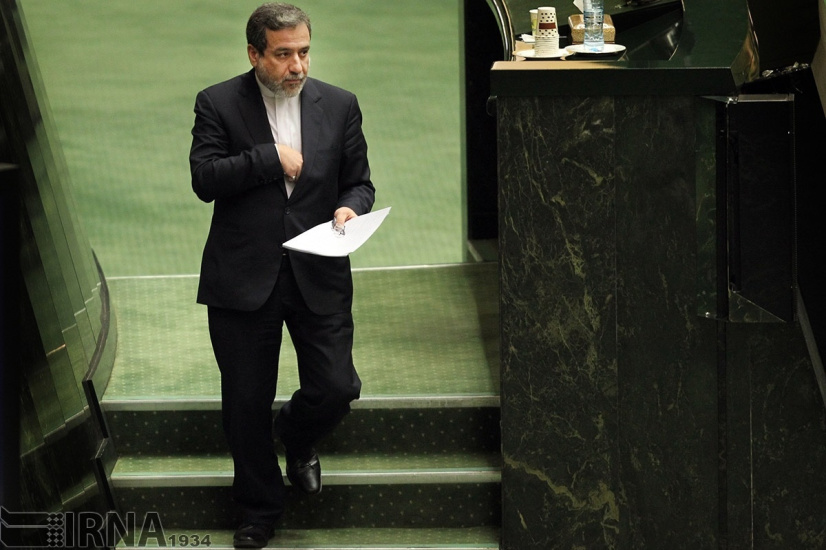A Strategic Overview of the Key Priorities for the Next Iranian Foreign Minister

Following the president-elect Masoud Pezeshkian's introduction of the proposed candidates for ministerial positions in the 14th government to the Islamic Consultative Assembly, parliamentarians have begun reviewing the list and evaluating the candidates' proposed programs. In this context, Seyed Abbas Araghchi, the nominee for the Ministry of Foreign Affairs, has presented a comprehensive and strategic plan to the parliament, aimed at advancing the country’s diplomacy in line with the complex and multifaceted needs of our foreign policy.
This plan, designed with a keen awareness of regional and international developments, reflects a balanced and effective approach to managing international relations and safeguarding our national interests. Araghchi emphasizes an "inclusive, active, and impactful" diplomacy, striving to elevate Iran's global standing to a more balanced and powerful level. Below, we take an in-depth look at the key elements of Araghchi’s proposed plan to better understand his approach to the country's diplomacy.
Inclusive and Active Diplomacy
Seyed Abbas Araghchi has clearly emphasized the importance of "inclusive and active" diplomacy in his program. This approach signifies a commitment to leveraging all diplomatic capacities to enhance national interests and increase Iran’s international influence. Active diplomacy entails a strong and effective presence on the global stage, while inclusive diplomacy involves expanding relationships and interactions with a broad spectrum of countries and international organizations. With this strategy, Araghchi aims to pull Iran out of the international isolation imposed by extra-regional powers and position the country as a key player in global affairs.
Full Coordination Between Field Operations and Diplomacy
Another crucial aspect of Araghchi’s program is the emphasis on full coordination between field operations and diplomacy. This approach underscores the importance of aligning domestic and foreign policies to ensure the best possible protection of national interests. In other words, diplomatic initiatives must be fully synchronized with the country’s internal policies and objectives. Such coordination can strengthen Iran’s bargaining power in international negotiations and enable more effective engagement with global challenges.
Support for the Resistance Axis and Palestinian Rights
Araghchi’s program also emphasizes unwavering support for the Resistance Axis and the rights of the Palestinian people. This stance reflects a commitment to the principles of the Islamic Revolution and the support of liberation movements resisting oppression. Supporting the Resistance Axis and advocating for Palestinian rights, especially in the current context of heightened tensions in the Middle East, can strengthen Iran’s relations with pro-resistance countries and improve its standing in the Islamic world.
Dignified and Opportunity-Driven Engagement with Europe
Another component of Araghchi’s plan focuses on "dignified, functional, and opportunity-driven" engagement with Europe. This approach prioritizes mutual respect and the consideration of shared interests. Engagement with Europe, as a major player in global politics, is crucial for Iran. The goal is to enhance trade and political relations with European countries and capitalize on existing opportunities to advance the country’s economic and political interests. This approach could help reduce tensions and create a positive foundation for international negotiations.
Preventing the Security Consensus Against Iran
Araghchi also stresses the importance of preventing the reestablishment of a security consensus against Iran in the UN Security Council. This is particularly important in the current climate, where some Western and regional countries are seeking to build consensus against Iran. Through effective diplomacy and efforts to improve relations with various countries, Araghchi aims to reduce international pressure and prevent the adoption of sanctioning and punitive resolutions in the Security Council.
The Honorable Lifting of Sanctions
Another key element of Araghchi’s plan is the honorable lifting of sanctions through targeted and non-exhaustive negotiations. This approach reflects the new government, led by Dr. Masoud Pezeshkian’s determination to reduce the economic burdens of sanctions and improve the country’s economic conditions. By utilizing all diplomatic capacities to neutralize and render sanctions ineffective, especially unilateral ones, this strategy could strengthen Iran’s economic and political position. The effort to lift sanctions honorably, while maintaining the system’s firm stances, demonstrates a smart and balanced approach to dealing with international challenges.
Securing Iran’s Rights in Transit Corridors
Focusing on Iran’s rights and shares in transit corridors is another significant aspect of Araghchi’s plan. Given Iran’s strategic geographical location, effectively leveraging transit corridors can boost the country’s economic position and increase national revenues. This issue plays a crucial role in improving economic conditions and enhancing regional and international trade interactions, especially in regional transportation and international transit.
Continuation of Strong Relations with China and Russia
The continuation of strong relations with China and Russia, along with expanding cooperation with emerging economies, is another vital part of Araghchi’s agenda. These relationships can bolster Iran’s global standing and enhance its bargaining power. Collaborating with emerging economies such as India, Indonesia, South Africa, and Brazil can also create new economic and trade opportunities for the country. This approach is particularly important as Iran seeks to strengthen its economic and trade relations with various countries, potentially improving the country's economic position.
Active and Persuasive Public Diplomacy
Active public diplomacy and smart narrative-building in the cognitive warfare are also part of Araghchi’s plan. This approach involves using public diplomacy tools to influence global public opinion and counter negative propaganda against Iran. By employing intelligent and persuasive narrative-building, Araghchi aims to present a positive and realistic image of Iran on the international stage and strengthen relations with various countries.
In summary, Seyed Abbas Araghchi’s proposed plan for the Ministry of Foreign Affairs, with its emphasis on active and functional diplomacy, alignment between field operations and diplomacy, support for the Resistance Axis, dignified engagement with Europe, and efforts to lift sanctions honorably, represents a comprehensive and strategic approach to managing international relations. Given the significant challenges and public and governmental demands currently facing the country, many of which are closely tied to the dynamism of the foreign policy apparatus, this plan has the potential to strengthen Iran's international standing and advance national interests, ultimately improving the country’s economic conditions.

